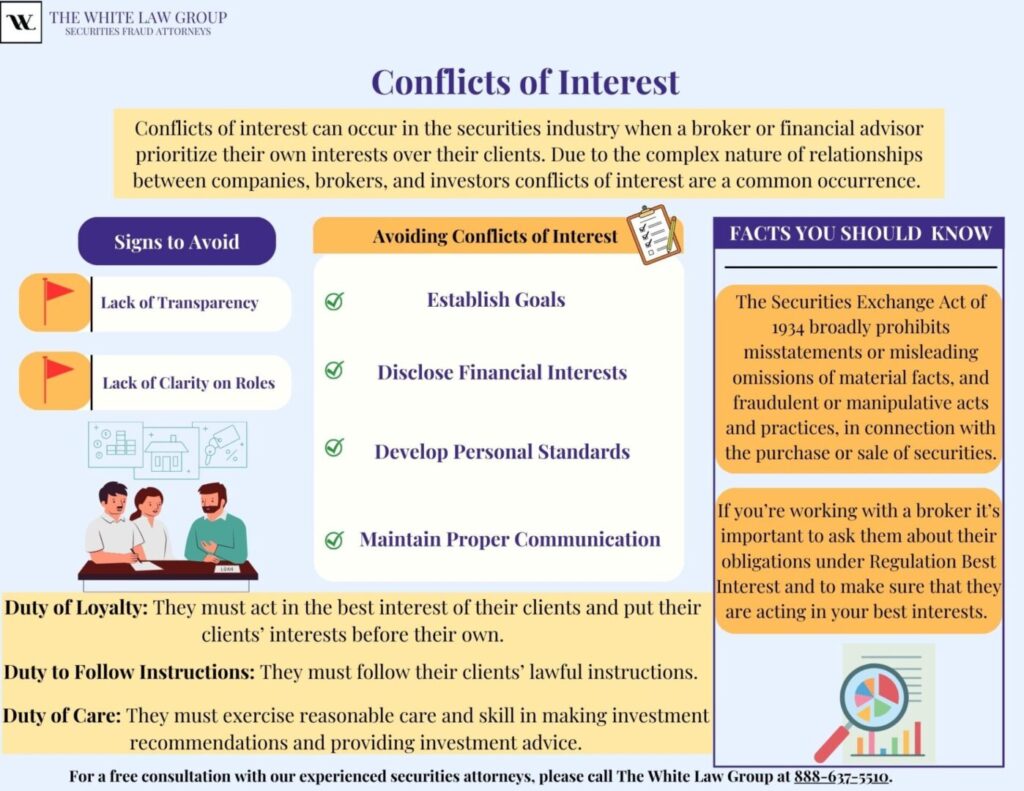The Financial Industry Regulatory Authority (FINRA) helps to keep investors and their investments safe by enacting rules and publishing guidance for brokerage firms and financial advisors. In 2016, a new rule, FINRA 3210 (Accounts at Other Broker-Dealers and Financial Institutions), was introduced and approved by the U.S. Securities and Exchange Commission. It supersedes Rule 407.
Rule 407, under the NYSE, was a law that required a letter for FINRA-registered representatives, allowing them to hold investments in equities or bonds in personal accounts. Rule 407 required the reps to disclose personal bank account information about the account in which they have the security. The rule was designed to avoid conflicts of interest and protect retail investors.
If you’re wondering what FINRA Rule 3210 is and how it protects your investments, you’ve come to the right place.
What is FINRA Rule 3210?
It ensures that registered brokerage firms, brokers, and financial advisors maintain high ethical standards. The rule also applies to associated persons, including people who are related to the employee, such as spouses, children, and other family members.
Conflicts of interest refer to situations where a financial professional’s interests or obligations may compromise their ability to act in the best interests of their clients. In the context of FINRA Rule 3210, conflicts of interest typically arise in scenarios where a registered representative or an associated person of a member firm participates in private securities transactions or engages in outside business activities.
When posing the question, “What is FINRA Rule 3210?” it’s insightful to interpret it as a mechanism overseeing peripheral equity holdings maintained by registered individuals. It’s vital. This mandate functions as a barrier, curbing potential exploitation through third-party trading affiliations. Its principal purpose remains investor protection (from compromised loyalty), especially in scenarios where personal ambition diverges from client-centric obligations—trust matters.
Examples of Conflicts of Interest
Understanding conflicts of interest is often easiest when examining examples. Here are some common ways these conflicts can arise in the brokerage industry.
Private Securities Transactions: Registered representatives may engage in private securities transactions outside of their member firm’s supervision. These transactions may involve selling securities not offered by their firm, which can lead to a conflict of interest if the representative’s interests are not aligned with those of their clients or the firm.
Outside Business Activities: Registered representatives may have outside business activities that could conflict with their obligations to their firm or clients. This raises concerns. For example, if a representative has a side business that competes with their firm or provides financial services to clients without proper disclosure, it could create conflicts of interest.
Undisclosed Compensation: Conflicts of interest may arise if a registered representative receives undisclosed compensation, such as referral fees or commissions, for recommending specific investments or products to clients. It’s not uncommon. This situation can influence the representative’s recommendations, which may require the need for someone to protect an investor from this conflict of interest.
Personal Investments: Registered representatives may have personal investments or financial interests that conflict with their duties to clients or their firm. An example of a conflict of interest is when a representative invests in a security they recommend to clients without disclosing their stake in it.
Requirements Under FINRA Rule 3210
This rule states that:
(a) No person associated with a (FINRA) member shall, without the prior written consent of the member, open or otherwise establish at a member other than the employer member or at any other financial institution any account in which securities transactions can be effected and in which the associated person has a beneficial interest.
(b) Any associated person, before opening or otherwise establishing an account subject to this Rule, shall notify in writing the executing member or other financial institution of his or her association with the employer member.
(c) An executing member shall, upon written request by an employer member, transmit duplicate copies of confirmations and statements or the transactional data contained therein concerning an account subject to this Rule.
Stated simply, to avoid conflicts of interest, representatives are required to obtain written permission when opening accounts at other financial institutions where securities transactions occur, including banks and brokerage firms. While a firm can monitor a representative’s activities within its organization, it may not be able to do so at another institution.
In addition, this rule requires executing firms (also known as outside financial institutions) to actively assist in compliance by providing transaction details and account statements upon request. This two-way obligation makes FINRA Rule 3210 a powerful tool to create transparency throughout the financial industry.
FINRA Rule 3210 Letter
In the past, Rule 407 was often referred to as a “Rule 407 Letter” because the declarations are required to be in writing. The same is true for Rule 3210.
FINRA Rule 3210 requires brokers and financial advisors to declare any outside accounts and notify their member firms in writing when they plan to open any new account where securities transactions will take place. The representatives are also required to obtain written consent from their member firms for any outside accounts they manage.
Frequently Asked Questions
I suspect my broker of a conflict of interest. What should I do?
Contact The White Law Group. We utilize our expertise to safeguard investors against conflicts of interest. Whether you’ve noticed undisclosed commissions, poor transparency, or personal investments that conflict with your portfolio and/or interests, we can investigate further.
Should I consult a securities fraud attorney?
Unless you’re a broker or own an investment firm, understanding the ins and outs of investing is often confusing. If you suspect you need an attorney’s help with securities fraud, it’s a good idea to speak with a law firm. Scheduling a consultation with The White Law Group is a no-cost way to have professional assistance in determining if FINRA Rule 3210 violations have occurred.
I have a question about broker recommendations. Can that indicate a conflict of interest?
Realizing examples of conflicts of interest isn’t always easy. If a broker consistently recommends investments and products that appear to be misaligned with your investment goals, it could be a significant red flag. This behavior could be due to a broker receiving undisclosed compensation (a violation of FINRA rules).
Free Consultation with Securities Attorneys
If you have questions about conflicts of interest or need representation from a FINRA attorney, the securities attorneys of The White Law Group may be able to help. For a free consultation, call the firm’s office at 888-637-5510.
The White Law Group, LLC is a national securities fraud, securities arbitration, investor protection, and securities regulation/compliance law firm dedicated to helping investors and financial professionals in claims in all 50 states. Since the firm launched in 2010, it has handled over 800 FINRA arbitration cases.
Additionally, our attorneys are highly experienced in identifying sometimes subtle violations of FINRA rules that may not be immediately obvious. The White Law Group works closely with you to ensure we have all the relevant information for review.
Our firm represents investors in all types of securities-related claims, including those involving FINRA Rule 3210 violations, stock fraud, broker misrepresentation, churning, unsuitable investments, selling away, unauthorized trading, and other related matters. We also represent financial advisors with employment disputes.
With over 35 years of securities law experience, including many years spent protecting investors from conflicts of interest. The White Law Group has the expertise to help you. With offices in Chicago, Illinois, and Seattle, Washington, the firm reviews securities fraud cases nationwide.
Tags: conflicts of interest, FINRA rule 3210, Rule 407 letter, securities fraud attorney Last modified: February 3, 2026


